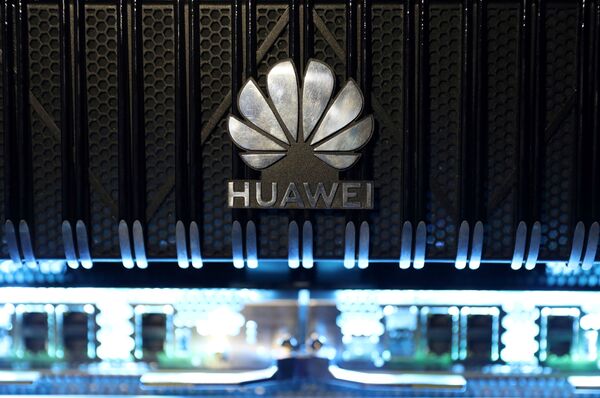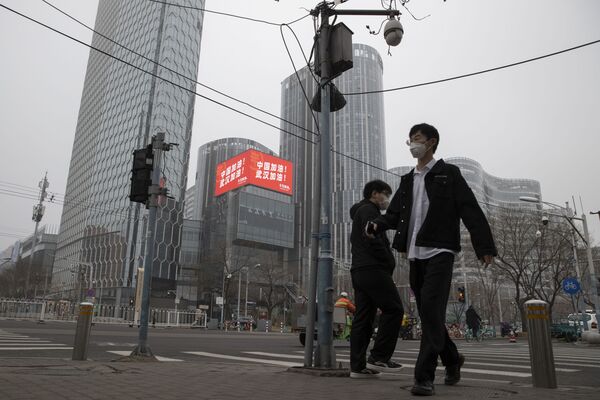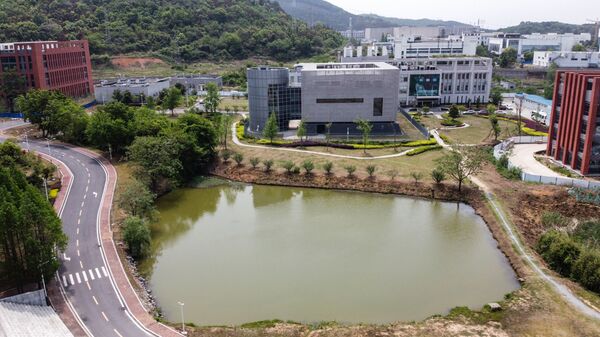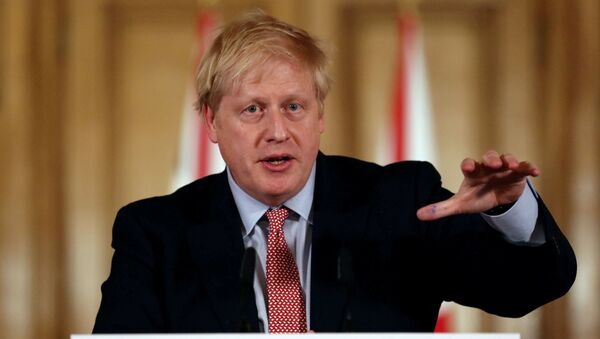UK Prime Minister Boris Johnson is being increasingly pressured by senior members of his Conservative Party to amend the country’s relationship with China and scrap its controversial deal with the telecoms company Huawei, reports Business Insider.
Conservative MPs are cited as revealing that the stance towards China has considerably “hardened” among Johnson's party- members after reports suggested that Beijing "consistently lied" about the COVID-19 pandemic and failed to "face up to its responsibilities."
On 16 April First Secretary of State Dominic Raab, deputizing for Boris Johnson as the latter recovers from the coronavirus, urged the international community to investigate the origins of the coronavirus outbreak in China and spoke of a subsequent “reckoning” with Beijing.
"There's no doubt that we can't have business as usual after this crisis, and we have to ask the hard questions about how it came about and how it could have been stopped earlier," said Raab.
In a more recent development, a Conservative MP chairing the UK Parliament's Foreign Affairs Committee Tom Tugendhat is quoted by the outlet as saying Boris Johnson would have to reconsider the UK's relationship with China.
"I think it's hardened many views in the parliamentary [Conservative] party."
Regarding the controversial decision of the UK to grant the Chinese company Huawei a limited role in the setting up of the national 5G infrastructure Tugendhat responded:
"I can't see how it doesn't change that. Clearly, it's going to have implications… It makes the Huawei position hard."
In January, the United Kingdom granted Chinese company Huawei Technologies a limited role in the setting up of national 5G infrastructure, while adding that it would be excluded from "core" parts and imposing a 35 per cent cap on involvement in non-sensitive parts.

The move came in defiance of mounting pressures from Washington and opposition from some members of the British government following concerns about the company’s alleged spying activities on behalf of the Chinese government. The allegations have been emphatically denied by the firm's officials and Beijing.
A senior MP and former Conservative minister was cited by Business Insider this week as revealing that opposition to the deal among Conservative Party ranks had grown significantly since the coronavirus pandemic and its fallout.
"I've had texts from a number of colleagues who weren't part of the rebellion [House of Commons vote in March], who were saying they won't vote for it next time. The view is hardening… There were some pretty key supporters of Boris who were rebelling [in March.] If that attitude is hardening, you can assume some more of the new intake will vote against the government. They're supposed to be Boris' soldiers," claimed the source cited by Business Insider.
Tugendhat and eight other Conservative MPs are reported by the outlet as having launched a China Research Group to "promote debate and fresh thinking about how Britain should respond to the rise of China."
The Mystery of the COVID-19 Origins
Most scientists tend to believe the coronavirus originated at a wet market in Wuhan, a city in China's Hubei province, where the outbreak was first registered, in December 2019.

However, sources in the UK government have reportedly been investigating whether the virus may have accidentally leaked from a laboratory in Wuhan where scientists were researching viruses, reported the Daily Mail on 11 April.
One member of Cobra, the emergency committee led by Boris Johnson, was cited as saying while intelligence reports did not dispute the virus was “zoonotic'” (originating in animals), the possibility it might have leaked from a Wuhan laboratory could not be dismissed.
"Perhaps it is no coincidence that there is that laboratory in Wuhan. It is not discounted," the official was cited as suggesting.
Meanwhile, a top laboratory official Yuan Zhiming, director of the Wuhan National Biosafety Laboratory, dismissed speculation that the coronavirus had escaped from the facility and caused the outbreak.

“There is absolutely no way that the virus originated from our institute,” Yuan said in an interview with the state-run China Global Television Network on 18 April.


